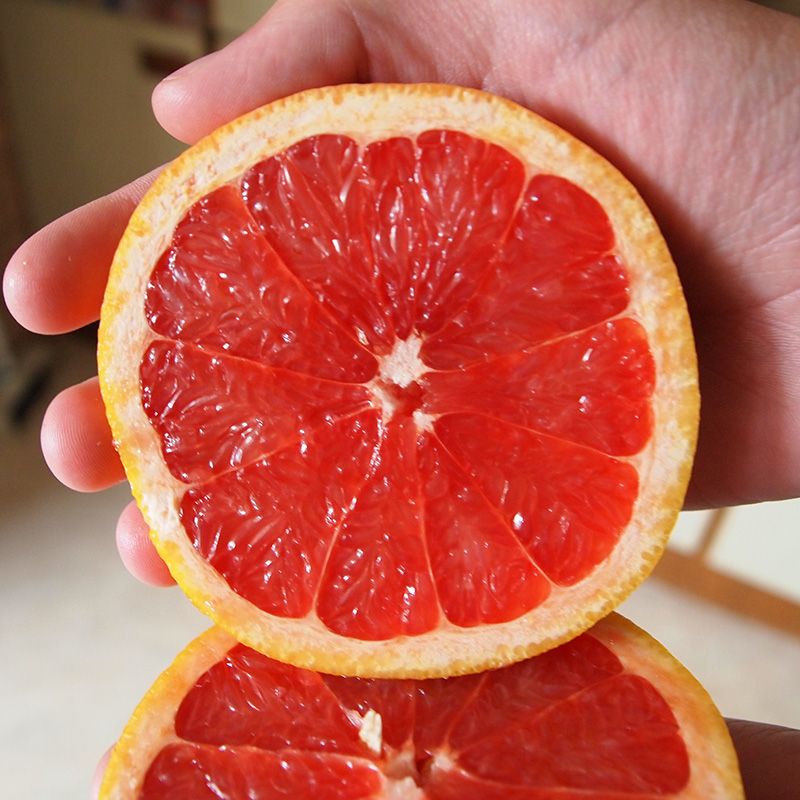
Optimizing skin health with food
In September of 2010, I created a mini post on my Grow with Nutrition Blog about skin health. This week Coca Cola and Sanofi launched the drink Beautific Oenobiol in Europe. This product is aimed at the beauty market and has the claim that four drinks a day may “help strengthen hair and nails, embellish skin, lose weight and improve vitality”. Now, I’m posting a more in- depth segment about nutrition and skin health.
Nutrition tips for skin health
Women and more men are paying close attention to what they put on their skin in order to maintain its appearance and youthfulness. Keep in mind, the skin is our largest organ, so to have a direct impact on skin health consider not only what you put on top of your skin, but what you fuel your body with.
It is important to eat healthy, balanced meals and not to focus on a single ingredient or ‘silver bullet’ to maintain skin health. Exercise three to four times a week – sweating helps remove unwanted toxins from the skin. Include good sources of dietary carbohydrates (i.e. barley and oats) and high quality protein (lean meat, poultry and fish) which assists in cellular growth. Make sure healthy dietary oils are part of your meal plan. They are found in fish, almonds, flax seeds and walnuts and they strengthen the enzymes that promote the production of collagen from within the body.
Good information about the macronutrients, but what about the micronutrients? Research has found that there are certain nutrients in foods which can optimize skin health (1-4).
Specific foods (and water) to include in your weekly meal plan to optimize skin health
Include at least two skin optimizing foods in your daily meal plan
Grapefruit and Yellow Bell Peppers= Vitamin C
- By weight, collagen makes up 75% of the skin and provides it elasticity and smoothness. Both grapefruit and yellow bell peppers are foods which contains high levels of vitamin C – a key factor and fuel source in the production of collagen (1).
Tomatoes and Watermelon = Lycopene
- The antioxidant, lycopene is found in many fruits and vegetables most notably tomato (cooking tomatoes has been shown to increase concentrations) and works as an antioxidant. Antioxidants help to eliminate free radicals caused by stress, environmental pollutants and aging. They may also reduce the risk of skin cancer (2).
- Watermelon has also been shown to have beneficial effects on the skin. Largely composed of water, it helps to hydrate the skin plus it contains lycopene, vitamins A and C.
Sweet Potatoes and Carrots = Beta-Carotene
- Both sweet potatoes and carrots contain beta-carotene which has anti-inflammatory properties (3). These properties help keep the skin smooth and healthy.
Salmon, Flax, Almonds and Walnuts = Omega 3 Fatty Acids and some Vitamin E
- Both omega-3 fatty acids found in marine and plant sources have shown anti-inflammatory effects and also increase protection from the sun (4). Omega -3 fatty acids strengthen the enzymes that promote the production of collagen from within the body.
- Nuts, most notably almonds, are high in vitamin E which is yet another powerful antioxidant protecting the skin from damaging free radicals.
Pumpkin Seeds, Lean meat and Poultry = Zinc
- Zinc is an essential mineral involved in numerous aspects of cellular metabolism and immune function to promote healing and skin protection.
Water
- A large percentage of our bodies are water. Drinking water and eating fresh fruits and vegetables will keep your skin hydrated and looking great.
Recipe – Salmon with fruit salsa
Try this delish recipe from yummly.com to include at least 4 skin optimizing foods – enjoy!
References
- Sharma, S. et al. Effect of vitamin C on collagen biosynthesis and degree of birefringence in polarization sensitive optical coherence tomography (PS-OCT). Afr J Biotechnol. 2010;7(12):2039 – 2054.
- Agarwal, S. & Rao, A. V. Tomato lycopene and its role in human health and chronic disease. Canadian Medical Association Journal. 2000;163(6):739-744.
- Bai, S.K. et al. Beta-Carotene inhibits inflammatory gene expression in lipopolysaccharaide-stimulated macrophages by suppressing redox-based NF-kappaB activation. Exp Mol Med. 2005;37(4):323-334.
- Boelsma E, Hendriks HF. Roza L. Nutritional skin care: health effects of micronutrients and fatty acids. Am J Clin Nutr. 2001;73(5):853-864.
